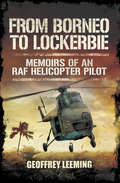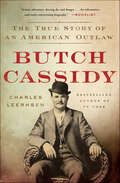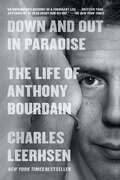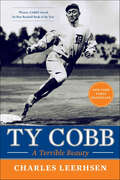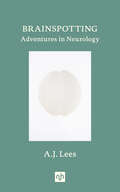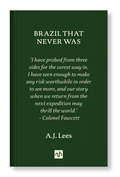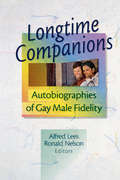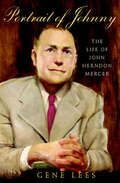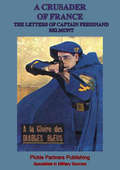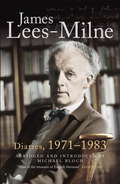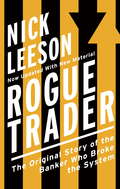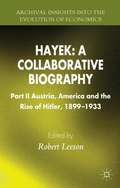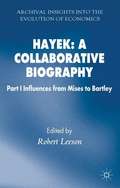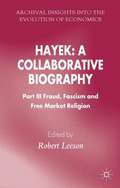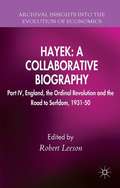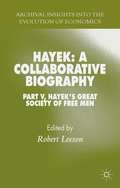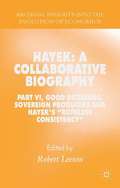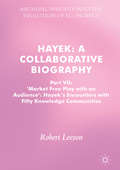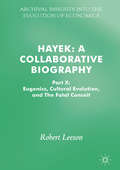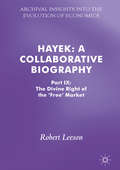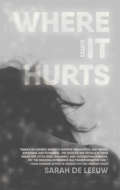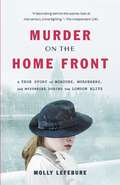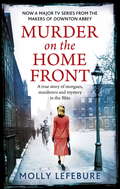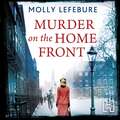- Table View
- List View
From Borneo to Lockerbie: Memoirs of an RAF Helicopter Pilot
by Geoffrey LeemingA pilot discusses his missions around the world as he chronicles his career with Britain’s Royal Air Force in the 1960s, ’70s, and ’80s.In 1961 Geoffrey Leeming achieved his boyhood ambition to become a RAF pilot. After a period as co-pilot on the tanker variant of the Valiant bomber, a sudden change of circumstances resulted in most of his subsequent service flying being as a helicopter pilot. The helicopter most in use at this time was the Whirlwind, a good aircraft but of limited performance and lacking the technical aids enjoyed by later types of helicopters.He next flew in the little-known Borneo Confrontation of the 1960s. Living in primitive jungle bases alongside loyal and friendly natives, the Whirlwind crews supported the land forces operating along the Indonesian border with long and hazardous flights over dense, frequently uncharted, jungle.Most of the Author’s remaining helicopter service was in the Search and Rescue role, firstly from RAF Lossiemouth, then from RAF Valley, flying in the mountains and over the surrounding seas of the Scottish Highlands and Snowdonia. Many lives were saved by Geoffrey and his crewmen in weather conditions frequently exceeding the safety limits in which they were supposed to operate.His final postings were as an instructor and as commander of the Search and Rescue Training Unit at Valley. This period culminated in his traumatic involvement in the immediate aftermath of the explosion of the Pan Am airliner over Lockerbie.From Borneo to Lockerbie is an exciting flying memoir enhanced by the Author's natural modesty.
Butch Cassidy: The True Story of an American Outlaw
by Charles LeerhsenCharles Leerhsen brings the notorious Butch Cassidy to vivid life in this &“lyrical and deeply researched&” (Publishers Weekly) biography that goes beyond the movie Butch Cassidy and the Sundance Kid to reveal a more fascinating and complicated man than legend provides.For more than a century the life and death of Butch Cassidy have been the subject of legend, spawning a small industry of mythmakers and a major Hollywood film. But who was Butch Cassidy, really? Charles Leerhsen, bestselling author of Ty Cobb, sorts out the facts from folklore and paints a &“compelling portrait of the charming, debonair, ranch hand-turned-outlaw&” (Ron Hansen, author of The Kid) of the American West.Born into a Mormon family in Utah, Robert Leroy Parker grew up dirt poor and soon discovered that stealing horses and cattle was a fact of life in a world where small ranchers were being squeezed by banks, railroads, and cattle barons. A charismatic and more than capable cowboy—even ranch owners who knew he was a rustler said they would hire him again—he adopted the alias &“Butch Cassidy,&” and moved on to a new moneymaking endeavor: bank robbery. By all accounts a smart and considerate thief, Butch and his "Wid Bunch" gang eventually graduated to more lucrative train robberies. But the railroad owners hired the Pinkerton Agency, whose detectives pursued Butch and his gang relentlessly, until he and his then partner Harry Longabaugh (The Sundance Kid) fled to South America, where they replicated the cycle of ranching, rustling, and robbery until they met their end in Bolivia.In Butch Cassidy, Leerhsen &“refuses to buy into the Hollywood hype and instead offers the true tale of Butch Cassidy, which turns out to be more fascinating and fun than the myths&” (Tom Clavin, bestselling author of Tombstone). In this &“entertaining…definitive account&” (Kirkus Reviews), he shares his fascination with how criminals such as Butch deftly maneuvered between honest work and thievery, battling the corporate interests that were exploiting the settlers, and showing us in vibrant prose the Old West as it really was, in all its promise and heartbreak.
Down and Out in Paradise: The Life of Anthony Bourdain
by Charles LeerhsenThe bestselling, &“unvarnished&” (The New York Times), &“engrossing&” (The Guardian), &“gritty, well-researched&” (The Economist)—and definitely unauthorized—biography of the celebrity chef and TV star Anthony Bourdain, based on extensive interviews with those who knew the real story.Anthony Bourdain&’s death by suicide in June 2018 shocked people around the world. Bourdain seemed to have it all: an irresistible personality, a dream job, a beautiful family, and international fame. The reality, though, was more complicated than it seemed. Bourdain became a celebrity with his bestselling book Kitchen Confidential. He parlayed it into a series of hit television shows, including the Food Channel&’s Anthony Bourdain: No Reservations and CNN&’s Parts Unknown. But his bad boy charisma belied a troubled spirit. Addiction and an obsession with perfection and personal integrity ruined two marriages and turned him into a boss from hell, even as millions of fans became enamored of the quick-witted and genuinely empathetic traveler they saw on TV. At the height of his success Bourdain was already running out of steam, physically and emotionally, when he fell hard for an Italian actress who could be even colder to him than he sometimes was to others, and who effectively drove a wedge between him and his young daughter. Down and Out in Paradise is the first book to tell the full Bourdain story, and to show how Bourdain&’s never-before-reported childhood traumas fueled both the creativity and insecurities that would lead him to a place of despair. &“Filled with fresh, intimate details&” (The New York Times), this is the real story behind an extraordinary life.
Ty Cobb: A Terrible Beauty
by Charles LeerhsenA fascinating and authoritative biography of perhaps the most controversial player in baseball history, Ty Cobb—&“The best work ever written on this American sports legend: It&’s a major reconsideration of a reputation unfairly maligned for decades&” (The Boston Globe).Ty Cobb is baseball royalty, maybe even the greatest player ever. His lifetime batting average is still the highest in history, and when he retired in 1928, after twenty-one years with the Detroit Tigers and two with the Philadelphia Athletics, he held more than ninety records. But the numbers don’t tell half of Cobb’s tale. The Georgia Peach was by far the most thrilling player of the era: When the Hall of Fame began in 1936, he was the first player voted in.But Cobb was also one of the game’s most controversial characters. He got in a lot of fights, on and off the field, and was often accused of being overly aggressive. Even his supporters acknowledged that he was a fierce competitor, but he was also widely admired. After his death in 1961, however, his reputation morphed into that of a virulent racist who also hated children and women, and was in turn hated by his peers.How did this happen? Who is the real Ty Cobb? Setting the record straight, Charles Leerhsen pushed aside the myths, traveled to Georgia and Detroit, and re-traced Cobb’s journey from the shy son of a professor and state senator who was progressive on race for his time to America’s first true sports celebrity. The result is a “noble [and] convincing” (The New York Times Book Review) biography that is “groundbreaking, thorough, and compelling…The most complete, well-researched, and thorough treatment that has ever been written” (The Tampa Tribune).
Brainspotting: Adventures in Neurology
by A.J. LeesFor fans of Oliver Sacks and Henry Marsh, a glimpse into the fascinating world of modern neurology by a leading expert in the field.As a trainee doctor, A. J. Lees was enthralled by his mentors: esteemed neurologists who combined the precision of mathematicians, the scrupulosity of entomologists, and the solemnity of undertakers in their diagnoses and treatments. For them, there was no such thing as an unexplained symptom or psychosomatic problem—no difficult cases, just interesting ones—and it was only a matter of time before all disorders of the brain would be understood in terms of anatomical, electrical, and chemical connections.Today, this kind of &“holistic neurology&” is on the brink of extinction as a slavish adherence to protocols and algorithms—plus a worship of machines—runs the risk of destroying the key foundational clinical skills of listening, observation, and imagination that have been at the heart of the discipline for more than 150 years.In this series of brilliant, insightful, and autobiographical essays, Lees takes us on a kind of Sherlock Holmes tour of neurology, giving the reader insight into—and a defense of—the deep analytical tools that the best neurologists still rely on to diagnose patients: to heal minds and to fix brains.
Brazil That Never Was
by A.J. LeesA famed British neurologist embarks on an expedition in Brazil to follow the trail of Percy Fawcett, an occult-obsessed explorer who went missing in the Amazon rainforest and was the subject of the 2016 film The Lost City of Z.As a boy growing up near Liverpool in the 1950s, Andrew Lees would visit the docks with his father to watch the ships from Brazil unload their exotic cargo of coffee, cotton bales, molasses, and cocoa. One day, his father gave him a dog-eared book called Exploration Fawcett. The book told the true story of Lieutenant Colonel Percy Fawcett, a British explorer who in 1925 had gone in search of a lost city in the Amazon and never returned. The riveting story of Fawcett's encounters with deadly animals and hostile tribes, his mission to discover an Atlantean civilization, and the many who lost their own lives when they went in search of him inspired the young Lees to believe that there were still earthly places where one could "fall off the edge."Years later, after becoming a successful neurologist, Lees set off in search of the mysterious figure of Fawcett. What he found exceeded his wildest imaginings. With access to the cache of "Secret Papers," Lees discovered that Fawcett's quest was far stranger than searching for a lost city. There was a "greater mission," one that involved the occult and a belief in a community of evolved beings living in a hidden parallel plane in the Mato Grosso.Lees traveled to Manaus in Fawcett's footsteps. After a time-bending psychedelic experience in the forest, he understood that his yearning for the imaginary Brazil of his boyhood, like Fawcett's search for an earthly paradise, was a nostalgia for what never was. Part travelogue, part memoir, Lees paints a portrait of an elusive Brazil, and of a flawed explorer whose doomed mission ruined lives.
Longtime Companions: Autobiographies of Gay Male Fidelity
by Alfred Lees Ronald NelsonLongtime Companions: Autobiographies of Gay Male Fidelity provides a sophisticated alternative to “anything goes” gay literature. Challenging the stereotype that gay men are incapable of lasting and successful relationships, 15 long-term gay couples share slices of their own lives to give you insight into their present relationships, while some discuss life after their mates have passed on. You will find that their stories offer an inspirational and richly fulfilling alternative to an empty life of promiscuity that lacks true love.Through a treasury of autobiographical essays, Longtime Companions documents how committed gay male unions can be as enduring, nurturing, and diverse as heterosexual marriages and proves that loving commitments and life-sharing are not exclusive to heterosexual unions. A celebration of gay diversity, this book offers you insights from contributors of different ages, professions, geographic locations, and attitudes. You will learn the intimate details of the couples’lives, including: how they met their partners how soon they committed to each other how long the couples have been together--from 14 years to over 50 years their keys to leading successful, happy lives the ways in which their relationships fulfill their personal needs and contribute to community lifeYou will come to realize the true strength of these men’s relationships as you share in their struggles within a society that offers them little recognition or support for their successful relationships. Co-editor Alfred Lees explains in the introduction to Longtime Companions, “We’ve all worked diligently to make our partnerships sound, nurturing, and enduring. We’ve done this without any social motivation, largely without role models, in the face of ‘official’disapproval or contempt. We’ve told our stories here to refute--by the simple facts of our experience--the grotesque misrepresentation of gays as being incapable of stable, committed relationships.” Will add more. . . Through a treasury of autobiographical essays, Longtime Companions documents how committed gay-male unions can be as enduring, nurturing, and diverse as heterosexual marriages and proves that loving commitment and life-sharing are not exclusive to heterosexual unions. A celebration of gay diversity, contributors vary in age, profession, geographic location, and attitudes. You will learn the intimate details of the couples’lives, including: how they met their partners how soon they committed to each other how they managed to collaborate on successful, fulfilling lives how some have maintained their commitment as part of an open relationshipYou will come to realize the true strength of these men’s relationships as you share in their struggles within a society that offers them little recognition or support for their successful relationships. Co-Author Alfred Lees explains in the Introduction to Longtime Companions, “We’ve all worked diligently to make our partnerships sound, nurturing, and enduring. We&’ve done this without any social innovation, largely without role models, in the face of ‘official” disapproval or contempt. We’ve told our stories here to refute--by the simple facts of our experience--the grotesque misrepresentation of gays as being incapable of stable, committed relationships.”
Portrait of Johnny: The Life of John Herndon Mercer
by Gene LeesAn intimate biography of the great songwriter, this is also a deeply affectionate memoir by one of Johnny Mercer's best friends. "Moon River," "Laura," "Skylark," "That Old Black Magic," "One for My Baby," "Accentuate the Positive," "Satin Doll," "Days of Wine and Roses," "Something's Gotta Give"--the honor roll of Mercer's songs is endless. Both Oscar Hammerstein II and Alan Jay Lerner called him the greatest lyricist in the English language, and he was perhaps the best-loved and certainly the best-known songwriter of his generation. But Mercer was also a complicated and private man. A scion of an important Savannah family that had lost its fortune, he became a successful Hollywood songwriter (his primary partners included Harold Arlen and Jerome Kern), a hit recording artist, and, as co-founder of Capitol Records, a successful businessman, but he remained forever nostalgic for his idealized childhood (with his "huckleberry friend"). A gentleman, a nasty drunk, funny, tender, melancholic, tormented--Mercer was a man immensely talented yet plagued by self-doubt, much admired and loved but never really understood. In music historian and songwriter Gene Lees, Mercer has his perfect biographer, who deals tactfully but directly with Mercer's complicated relationships with his domineering mother; his tormenting wife, Ginger; and Judy Garland, who was the great love of his life. Lees's highly personal examination of Mercer's life is sensitive as only the work of a friend of many years could be to the conflicts in Mercer's nature. And it is filled with insights into Mercer's work that could come only from a fellow lyricist (whose own lyrics were much admired by Mercer). Apoignant, candid, revelatory portrait of Johnny.
A Crusader Of France: The Letters Of Captain Ferdinand Belmont Of The Chasseurs Alpins (August 2, 1914-December 28, #1915)
by George Frederic Lees Captain Ferdinand BelmontThe Chasseurs Alpins, trained to fight in the mountains that border France, were and are to this day considered among the elite of the French Army. It was in the mountains of the Alsace region during the First World War that Captain Ferdinand Belmont fell prey to German fire. He was a soldier of rare ability fighting, decorated with the Légion d'Honneur and mentioned in despatches three times, but does not truly paint the picture of the man. A doctor by profession, he volunteered for front-line service along with his brother and was described by his superiors only in the most glowing terms as both a man and a soldier. In his letters home, Captain Belmont provides a detailed and rich picture of his men, full of the thoughtful musings of an educated man on the strains of war. His encounters with the enemy were fairly numerous and are detailed from his first clashes on the Somme up to the mountain fighting in the Vosges, with not a little venom directed at his German foe. During the bitter struggles for the mountain peak at Hartmannswillerkopf, he and his men suffered heavy casualties, and during a barrage, Captain Belmont was wounded by a shell splinter that took off his right arm, a wound that proved fatal.
Diaries, 1971-1983
by James Lees-Milne Michael BlochFunny, indiscreet, candid, touching and sharply observed, this second compilation from James Lees-Milne's celebrated diaries covers his life during his sixties and early seventies, when he was living in Gloucestershire with his formidable wife Alvilde. It vividly portrays life on the Badminton estate of the eccentric Duke of Beaufort, meetings with many friends (including John Betjeman, Bruce Chatwin and the Mitford sisters) and the diarist's varied emotional experiences. Having made his name as the National Trust's country houses expert and a writer on architecture, he now established himself as a novelist and biographer. With some misgivings he published his wartime diaries, little imagining that it was as a diarist that he would achieve lasting fame.
Rogue Trader
by Nick LeesonWhen Leeson was arrested in 1995 for bringing Barings Bank to its knees, it initially seemed as if he had single-handedly crushed the company. Indeed, it was he alone who found himself in the dark confines of a Singapore jail, from where he wrote Rogue Trader. Now updated for the twentieth anniversary of the collapse of Barings, this is his story of a broken system; of a cast of characters blind to anything but profits - whatever the cost. Leeson's tale of boom and bust is an important reminder of the immense power the banking system held and, worryingly, still holds.
Rogue Trader
by Nick LeesonWhen Leeson was arrested in 1995 for bringing Barings Bank to its knees, it initially seemed as if he had single-handedly crushed the company. Indeed, it was he alone who found himself in the dark confines of a Singapore jail, from where he wrote Rogue Trader. Now updated for the twentieth anniversary of the collapse of Barings, this is his story of a broken system; of a cast of characters blind to anything but profits - whatever the cost. Leeson's tale of boom and bust is an important reminder of the immense power the banking system held and, worryingly, still holds.
Hayek: Part II Austria, America and the Rise of Hitler, 1899- 1933 (Archival Insights Into the Evolution of Economics)
by Robert LeesonA group of leading scholars from around the world use archival material alongside Hayek's published work to bring a new perspective on the life and times of one the 20th Century's most influential economists. This much awaited second volume details the life of Hayek from 1899 to1933 covering Hayek's time in Austria and the USA.
Hayek: Part I Influences from Mises to Bartley (Archival Insights Into the Evolution of Economics)
by Robert LeesonThis is the first collaborative biography of Hayek. Some of the world's most distinguished scholars will integrate the archival evidence with Hayek's published writings to illuminate the process by which Hayek changed the direction of world history.
Hayek: Part III Fraud, Fascism and Free Market Religion (Archival Insights Into the Evolution of Economics)
by Robert LeesonIn 1984, F. A. Hayek, the co-leader of the Austrian free market neo-classical school, embraced the transparently fraudulent assertion made by Donald McCormick, aka Richard Deacon, in The British Connection (1979) which accused A. C. Pigou, the co-leader of the Cambridge market failure neo-classical school, of being a Soviet spy. Over lunch at the Reform Club with 'Deacon' McCormick, the former Sunday Times Foreign Manager, Hayek authenticated the fraudulent signature contained in a 1905 diary the essence of the case against Pigou. In this third volume of Hayek: A Collaborative Biography, a distinguished collection of academics and specialists examine 'Deacon' McCormick's fraudulent career: summarizing the large volume of incriminating evidence that was available to Hayek in 1984. Hayek's 1931 unsubstantiated assertion about having predicted the Great Depression was obviously matched by other equally unreliable assertions. That Hayek's assertions have been uncritically repeated by his disciples illuminates dynamics of that school. Austrian School economists who promote financial sector deregulation and climate change denial appear to resemble a free market religion rather than the scientific communities examined in other volumes in this series. "
Hayek: Part IV, England, the Ordinal Revolution and the Road to Serfdom, 1931- 50 (Archival Insights Into the Evolution of Economics)
by Robert LeesonThe study encompasses historical, social, political and economic viewpoints in examining Hayek's life and the history of economic thought. In the early 1930s, Hayek's business cycle work was apparently defeated by John Maynard Keynes and Piero Sraffa. However, Hayek had three successes. The Ordinal revolution, which undermined the foundations of welfare economics, was successfully transplanted from pre-war Austria and Lausanne to inter-war Britain. The Road to Serfdom (1944) attributed blame for Hitler not on those who funded him (the business sector) but on those who opposed him (socialists). In 1947, Hayek also launched the highly influential Mont Pelerin Society. Hayek had to diplomatically navigate around the other branch of the Austrian School (as represented by Ludwig Mises) whilst maintaining support from members of the nascent Chicago School. As an atheist Hayek had to compromise: the Society would not be named after two Roman Catholic aristocrats (The Acton de Tocqueville Society), but what later became known as the 'religious right' was, nevertheless, accommodated.
Hayek: Part V, Hayek's Great Society of Free Men (Archival Insights Into the Evolution of Economics)
by Robert LeesonThis fifth biographical volume examines the hypothesis that Hayek's promotion of the Great Society of Free Men was consistent with his behavioural postulate: amoral self-interest. His Constitution of Liberty promoted those with inter-generational entitlements as the true defenders of 'civilisation' and 'property' - an Austrian School of Economics vision of society dominated by the wealthy. According to Hayek, labour unions were enemies of his 'spontaneous' order: yet unions evolved spontaneously. This archival series also provides an opportunity for reflection, correction and elaboration: two chapters responses to material contained in Part I of Hayek: A Collaborative Biography. <P><P>F.A. von Hayek (1899-1992), who's Nobel Prize for Economic Sciences appears to have been awarded, in part, for a job-interview assertion for which – after eight decades – no evidence has emerged, was famous for promoting the Austrian version of classical liberalism.
Hayek: Part VI, Good Dictators, Sovereign Producers and Hayek's "Ruthless Consistency" (Archival Insights Into The Evolution of Economics)
by Robert LeesonIn this sixth volume contributors examine Hayek's neoliberal economics and politics in the 20th century, and the demise of the socialist system. Taking a closer look at Hayek's time in Australia, and his time spent travelling in the east.
Hayek: Part VII, 'Market Free Play with an Audience': Hayek's Encounters with Fifty Knowledge Communities (Archival Insights into the Evolution of Economics)
by Robert LeesonThis book is the seventh volume in this series which explores the life of Nobel Price-winning economist F.A. Hayek (1899-1992). The volume uses archival material, juxtaposed with Hayek’s published work to challenge the existing perceptions of his life and thought. It examines the methods by which Hayek interacted with – and schemed against – the knowledge communities that he encountered during his very long life. Chapters explore the ‘rules of engagement’ that Hayek employed when interacting with fifth leading knowledge communities, including the Nobel Prize selection committee who were led to believe his claim about having predicted the Great Depression. It also explores his interactions with William Beveridge, the founder of the modern British Welfare State, A. C. Pigou, the founder of the market school, J. M. Keynes, Sir Arthur Lewis, and Abba Lerner.
Hayek: Part X: Eugenics, Cultural Evolution, and The Fatal Conceit (Archival Insights into the Evolution of Economics)
by Robert LeesonThis tenth part of Robert Leeson's collaborative biography of Friedrich August von Hayek explores Hayek’s thought on the free market and democracy. Using an unparalleled array of archival materials, Leeson reconstructs Hayek’s thinking as the notorious economist and his acolytes set about reshaping the post-war economic order. Darker areas of Hayek’s thought are also explored, including the influence of eugenics on his thought and his support for radical right-wing dictatorships in South America. <P><P> Leeson concludes this volume with a collection of chapters written by eminent scholars of Hayek. These chapters cover subjects as diverse as Hayek’s influence on scholars of Darwinian evolution, his views on psychology, and cultural evolution.
Hayek: Part IX: The Divine Right of the 'Free' Market (Archival Insights into the Evolution of Economics)
by Robert LeesonIn 1984, F. A. Hayek, the co-leader of the Austrian free market neo-classical school, embraced the transparently fraudulent assertion made by Donald McCormick, aka Richard Deacon, in The British Connection (1979) which accused A. C. Pigou, the co-leader of the Cambridge market failure neo-classical school, of being a Soviet spy. Over lunch at the Reform Club with 'Deacon' McCormick, the former Sunday Times Foreign Manager, Hayek authenticated the fraudulent signature contained in a 1905 diary the essence of the case against Pigou. In this third volume of Hayek: A Collaborative Biography, a distinguished collection of academics and specialists examine 'Deacon' McCormick's fraudulent career: summarizing the large volume of incriminating evidence that was available to Hayek in 1984. Hayek's 1931 unsubstantiated assertion about having predicted the Great Depression was obviously matched by other equally unreliable assertions. That Hayek's assertions have been uncritically repeated by his disciples illuminates dynamics of that school. Austrian School economists who promote financial sector deregulation and climate change denial appear to resemble a free market religion rather than the scientific communities examined in other volumes in this series. "
Where It Hurts
by Sarah De LeeuwWhere It Hurts is a highly-charged collection of personal essays, haunted by loss, evoking turbulent physical and emotional Canadian landscapes. Sarah de Leeuw's creative non-fiction captures strange inconsistencies and aberrations of human behaviour, urging us to be observant and aware. The essays are wide in scope and exposing what—and who—goes missing.With staggering insight, Sarah de Leeuw reflects on missing geographies and people, including missing women, both those she has know and those whom she will never get to know. The writing is courageously focused, juxtaposing places and things that can be touched and known—emotionally, physically, psychologically—with what has become intangible, unnoticed, or actively ignored. Throughout these essays, de Leeuw's imagistic memories are layered with meaning, providing a survival guide for the present, including a survival that comes with the profound responsibility to bear witness.
Murder on the Home Front: A True Story of Morgues, Murderers, and Mysteries during the London Blitz
by Molly LefebureIt is 1941. While the "war of chaos" rages in the skies above London, an unending fight against violence, murder and the criminal underworld continues on the streets below.One ordinary day, in an ordinary courtroom, forensic pathologist Dr. Keith Simpson asks a keen young journalist to be his secretary. Although the "horrors of secretarial work" don't appeal to Molly Lefebure, she's intrigued to know exactly what goes on behind a mortuary door.Capable and curious, "Miss Molly" quickly becomes indispensible to Dr. Simpson as he meticulously pursues the truth. Accompanying him from somber morgues to London's most gruesome crime scenes, Molly observes and assists as he uncovers the dark secrets that all murder victims keep.With a sharp sense of humor and a rebellious spirit, Molly tells her own remarkable true story here with warmth and wit, painting a vivid portrait of wartime London.
Murder on the Home Front: a gripping murder mystery set during the Blitz - now on Netflix!
by Molly LefebureThe remarkable true story, as seen in the brilliant TV adaptation now showing on Netflix! Murder on the Home Front follows Molly Lefebure as she navigates working for the Home Office's chief forensic pathologist while living in a bomb-stricken London during the second world war. One ordinary day in 1941, forensic pathologist Dr Keith Simpson asks a keen young journalist to be his secretary. Although the 'horrors of secretarial work' don't appeal to Molly Lefebure, she's intrigued to find out exactly what goes on behind a mortuary door. Capable and curious, 'Miss Molly' quickly becomes indispensible to Dr Simpson as he meticulously pursues the truth. Accompanying him from sombre morgues to London's most gruesome crime scenes, Molly observes and assists the investigations into murders which, despite the war around them, are still being perpetrated.
Murder on the Home Front: a gripping murder mystery set during the Blitz - now on Netflix!
by Molly LefebureIt is 1941. There may be a 'war of chaos' in the skies over London, but 'the perpetual war against the underworld of crime' must nevertheless continue on the streets below. At 12 o'clock on a Spring day in a London Coroner's Court, famed forensic pathologist Dr Keith Simpson asks young journalist Molly Lefebure if she might like to become his secretary. Recalling the 'horror of secretarial work and secretarial young ladies', she turns him down flat, resolving to stick to twelve-hour days covering 'everything from Boy Scout meetings to the blitz'. By 3 o'clock that afternoon, curious about exactly what goes on behind a mortuary door, Molly has changed her mind. It is the beginning of an extraordinary adventure. 'Miss Molly' becomes Dr Simpson's right-hand woman, following him to crime scenes, courtrooms and mortuaries, taking notes, collecting evidence and witnessing the most shocking of sights. 'You'll never regret going to work in the mortuaries, Miss Molly,' a coroner's officer told her. 'There's never a dull moment with the bodies around.'
